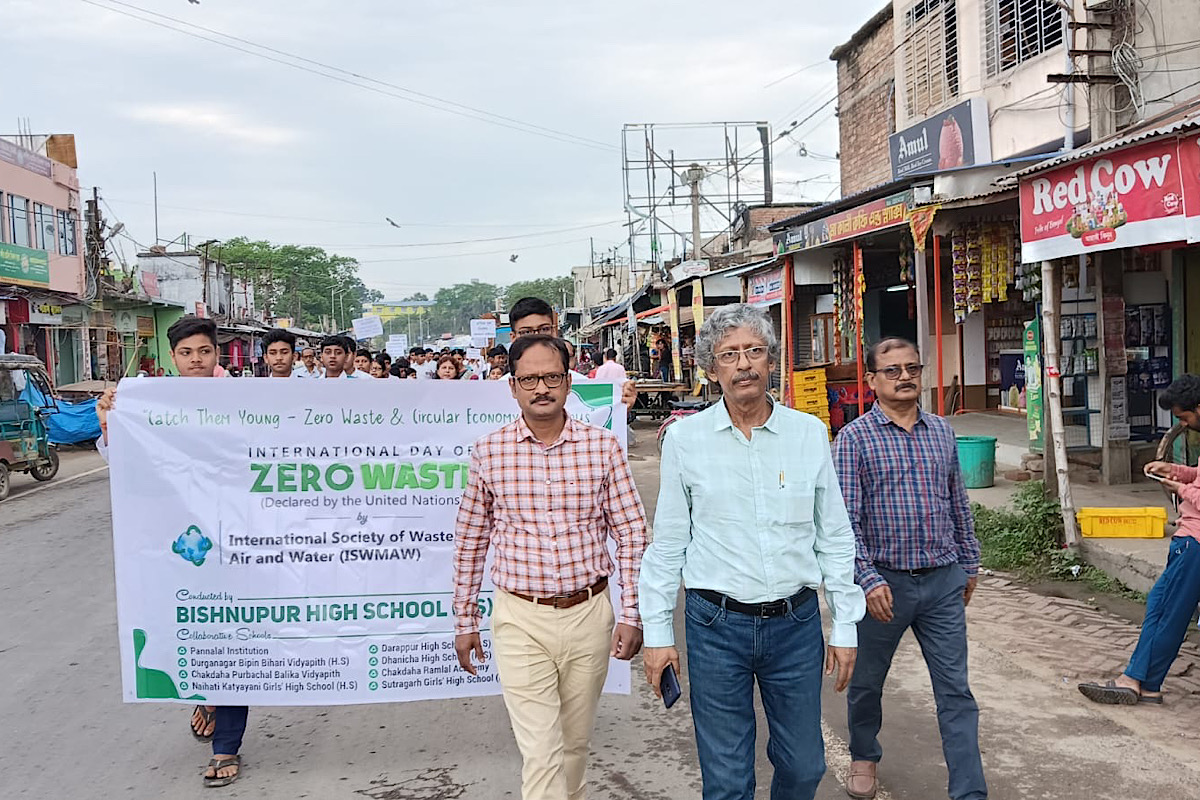City and district schools are being taught about circular economy, which means judiciously managing the waste generated to convert it into means of earning money from it.
The schools, government and private, are enrolling for the mission, Catch Them Young-Zero Waste & Circular Economy in School Campus.
Advertisement
The model is workable and sustainable, said its proposer Prof Sadhan Ghosh, former dean of Jadavpur University, an expert on waste management.
One of the schools Santoshpur Rishi Aurobindo Balika Vidyapith has been successfully managing their waste and using it to generate funds for school.
Sarbani Sen, headmistress, Santoshpur Rishi Aurobindo Balika Vidyapith, said, “We have the coloured bins on each floor. Even in the staff room, girls have created their own bin with cardboard. We have a kitchen garden (1,000sqm) on the terrace where our biodegradable waste is being used as compost. All the vegetable waste from our mid-day meal (MDM) are used there as manure and also the vegetables grown there are used for the MDM.”
Students at the school are making models from non-biodegradable waste, which were auctioned.
City schools are now being developed under the ‘hub and spoke’ model and Santoshpur Rishi Aurobindo Balika Vidyapith is the hub and nearby 10 schools are the spoke schools.
Sushitava Bhattacharjee, headmaster of Bishnupur High School in Nadia is also enthusiastic about the mission.
“We had a waste management programme in our school. After being associated with Prof Ghosh, it has become more organised. We have sensitised students and they held rallies in the markets, their neighborhood on the concept. We are also trying to have a plant to produce vermicompost from the MDM refuse. That compost will be used in our school’s kitchen garden. We have inculcated in the kids that waste is also wealth and waste is segregated,” said Mr Bhattacharjee.
The school had even sent seven of our teachers for training on waste management earlier.
“Our target is to make the whole of Bishnupur clean, starting with the students of Class V-VI,” added Mr Bhattacharjee.
Garia Harimati Devi Uchcha Balika Vidyalaya, headmistress Piyali Goswami said along with her school On 30 March, five more nearby schools like Jadavpur High School, Green Park Shiksha Sadan, another school from Dum Dum participated in the event.
Through placards the students told people that everything has its value, even the waste. They also created slogans for the same.
Said Piyali Goswami, “Our work education teacher helps children to make products like bags, flower vases, paper flowers etc. out of the waste generated at school and they exhibit it annually, which is an alternative to plastic. Girls made table lamps from discarded mobile phones and a robocar. Children can learn how to make a product or of discarded items. They can, in future, take it up as a profession.”
The International Society of Waste Management and Air and Water (ISWMAW) has district coordinator schools in most of the districts.
My mission started in 1999, said Prof Sadhan Ghosh.
“Unless this is propagated to school children, this model cannot be sustainable one. If I can inculcate the idea of waste management and circular economy, in the formative years, it will start lifelong with them. I had a target that by 2025 December I wanted to involve 70,000 students. But by April 25 of this year, 50 schools have already joined us, which translates to 70,000 to 72,000 students. So as per my revised target, by December this year, I want to reach out to 1 lakh students,” said Prof Ghosh.
The ISWMAW does regular awareness programmes and is training the teachers. They are handing over wet waste to the municipality. The school is earning through this, said Prof Ghosh.
Prof Ghosh said ISWMAW is finding the schools but with the mission getting bigger by the day, he wants government funding. “But we will have to approach the government and the corporate sector for funding as the project becomes bigger,” he said.









